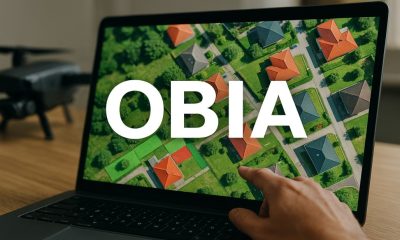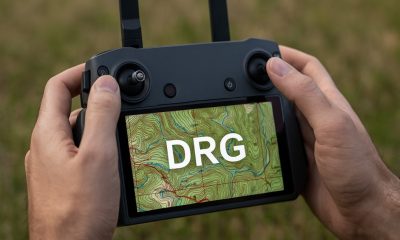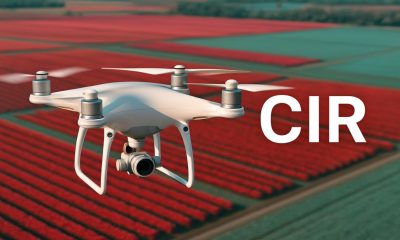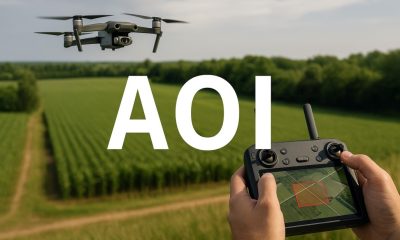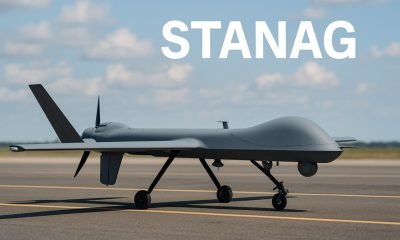France Drone Regulations
Basic Drone Rules in France
Published
8 months agoon
Table Of Contents

Basic Drone Rules in France
The Basic Drone Rules in France have been established to ensure safe and legal drone operations for both recreational and commercial users. These fundamental rules cover key aspects such as drone registration, age requirements, and operating limitations. Understanding and adhering to these basic regulations is essential for anyone flying a drone in France, helping to promote public safety and compliance with national and European Union standards.
Registration Requirements
Mandatory Registration
- Drones over 800 grams: Any drone weighing more than 800 grams must be registered with the Directorate General for Civil Aviation (DGAC). This includes both recreational and commercial drones.
- Process: Operators must register their drone on the official platform and affix a unique identification number to the drone in a visible location. This registration is a key step in ensuring that drone activities are tracked and that operators can be held accountable if necessary.
Age Requirements
Minimum Age
- For Recreational Use: Operators must be at least 14 years old to fly a drone recreationally in the Open Category.
- For Commercial Use: The minimum age for commercial drone operators is 16 years old, with additional training and certification requirements depending on the type of operation.
- Supervision for Minors: Minors under the minimum age may operate drones under the direct supervision of a qualified adult who meets the age requirements.
Licensing and Certification
Certification for Advanced and Commercial Operations
- Remote Pilot Certificate (CATT): Commercial operators and those conducting advanced operations are required to obtain a Remote Pilot Certificate, known in France as the Certificat d’Aptitude Théorique de Télépilote (CATT). This certification ensures that pilots have the necessary knowledge and skills for safe drone operations.
- Training Requirements: To obtain the CATT, operators must complete DGAC-approved training and pass a theoretical exam covering airspace regulations, safety procedures, and risk management.
Identification and Marking
Visible Marking on the Drone
- Identification Number: All registered drones must display their unique identification number issued during registration. This number must be clearly visible on the drone’s body to help authorities quickly identify the operator.
- Marking Guidelines: The marking should be durable, easy to read, and placed in a location that is clearly visible without the need for specialized equipment or tools.
Operating Limits
Maximum Altitude
- 150 Meter Altitude Limit: The maximum permissible altitude for drone flights in France is 150 meters above ground level. Flying above this limit requires special authorization from the DGAC.
Distance from People and Property
- Safe Distance: Drones must maintain a minimum distance of 30 meters from uninvolved people and private property, except for operators who have additional certification allowing closer proximity.
- Overflight of People: Flying directly over people is prohibited without specific DGAC permission, as this presents a safety risk in the event of equipment failure.
Restricted Airspace
- No-Fly Zones: Operators are prohibited from flying drones in restricted areas, such as near airports, military zones, or national monuments, without explicit authorization. It is recommended to use apps like Géoportail to check for restricted zones before each flight.
Visual Line of Sight (VLOS)
- VLOS Requirement: Operators must keep their drone within direct visual line of sight without the use of binoculars or other visual aids. This requirement helps prevent collisions and ensures better control over the drone.
Night Operations
- Lighting Requirements: Night flights are permitted only for operators with specific permissions from the DGAC. Drones flown at night must be equipped with anti-collision lights to enhance visibility.
- Additional Training: Operators conducting night flights may need to complete additional training and provide safety protocols as part of their DGAC application.
Summary
The Basic Drone Rules in France are designed to ensure safe, responsible, and legally compliant drone flights. From registration and age requirements to operating limits and restrictions on night flights, these regulations cover the essential aspects of drone use for both recreational and commercial pilots. By following these guidelines, operators can avoid penalties and contribute to a safer airspace for everyone.
To Learn more about acronyms used in this article visit our Drones Acronym Page.
